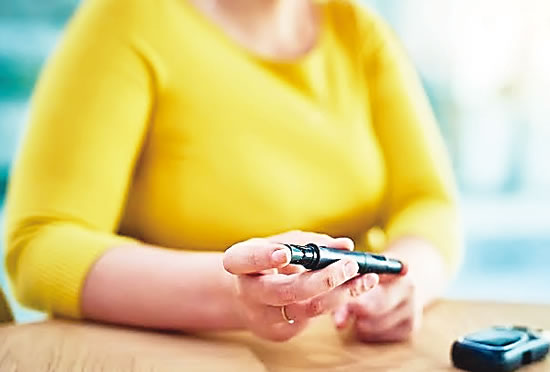[ad_1]
THE Consultant Endocrinologist at Garki Hospital Abuja, Dr Olusegun Ajuwon, has advocated that Nigerians consume foods that contain high quantities of fibre to prevent diabetes.
He stated this in Abuja at the Health Talk/ Sensitisation forum in commemoration of the 2022 World Diabetes Day with the theme, “Education to Protect Tomorrow” organised by NISA- Garki Hospital.
The United Nations designated November 14 annually as World Diabetes Day, (WDD), in response to the growing concerns about the escalating health threat posed by diabetes.
Diabetes is a chronic disease that occurs when the pancreas does not produce enough or when the body cannot make good use of the insulin it produces.
Currently, Nigeria has over 3.6 million adults (20-79 years) and 4,440 children and adolescents (0-19 years) living with diabetes, which is expected to increase to 134 percent by 2045, as revealed by Novo Nordisk, a global healthcare company.
Ajuwon debunked insinuations that artificial sweetener causes cancer, even as he warned that no type of rice (either Basmati or Nigerian-grown rice) should be recommended for diabetes patients.
His word: “If you have one person in your family with diabetes, there are chances that you will have diabetes. The most reliable test for diabetes is a blood test since it doesn’t contain sugar.”
Another Consultant Endocrinologist, Dr Amanda Onwuah, listed the major causes of diabetes as too little insulin, family history of diabetes, obesity/overweight, high blood pressure, sedentary lifestyle, abnormal blood lipid levels and among others.
She explained that unexplainable weight loss, drinking too much water, frequent urination, blurred vision, recurrent boil, urinary tract infection, increased hunger, blurry vision, slow healing wounds, itchy skin and tingling sensations in the hands and feet are the major symptoms of diabetes.
Onwuah said that stroke, blindness, heart attack, kidney failure, impotence, vascular disease or amputations are the key complications triggered by uncontrolled and untreated diabetes.
She encouraged Nigerians to exercise daily for at least 30 minutes, and eat more fruits and vegetables so as to prevent diabetes, adding that untreated high blood sugar can damage the blood vessels.
Onwuah hinted that the cost of the complications is higher than the cost of managing diabetes.
A dietician at Garki Hospital Abuja, Dr Grace Abasirim, stated that diabetes could be prevented by eating foods that contain high fibre, noting that eating unhealthy foods makes it difficult for doctors to manage diabetes patients.
“If you are managing diabetes, you shouldn’t eat eba for dinner. It should be your lunch, alongside a soup that is rich in fibre like vegetables”, she said and advised Nigerians to avoid simple sugar like malt, fanta, honey, pastries, beverages and other high-sugar food.
One of the beneficiaries, Mrs Happiness Abochi, rated the exercise high, saying that she learnt a lot, especially on how to care for diabetes patients.
Another beneficiary, Mr Sunday Osafaron, said that the programme is very educative, just as he appreciated the hospital for enlightening Nigerians on the dangers associated with diabetes.
He encouraged governments at all levels to create more awareness of the dangers associated with diabetes especially at the grassroots, as many people are dying in silence.
About 100 people, participated in the testing and screening exercise.
[ad_2]








